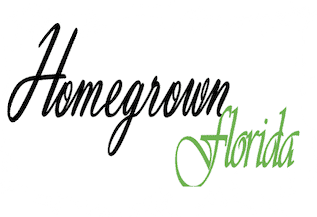Last Updated on January 25, 2024 by Homegrown Florida
We’re diving into the essential topic of fertilizing your vegetable garden. Fertilization plays a crucial role in ensuring robust plant growth and bountiful harvests, especially in Florida, where soil challenges are common. We’ll explore the right amount of fertilizer, how often to fertilize, and various organic fertilizer options suitable for your garden.
Determining the Right Amount of Fertilizer:
The quantity of fertilizer depends on your garden’s size and the type of fertilizer chosen. A general recommendation is one to two pounds of fertilizer per 100 square feet of garden space. Ensuring even application across the garden guarantees that all plants receive the necessary nutrients.
How Often to Fertilize:
Most vegetable gardens benefit from fertilization every four to six weeks throughout the growing season. My strategy of a substantial feed, applying 4.5 cups per bed at the start of spring and fall gardening, allows me to reduce my fertilizer use in between seasons. If I do require a nutrient boost, liquid fertilizers, such as Neptune’s Harvest fish fertilizer, become my go-to for the remainder of the season, applied once a week to once a month based on plant type and needs. Monitoring your plants and soil is crucial; signs of nutrient deficiencies may require more frequent fertilization.

Different Kinds of Organic Fertilizers:
Various organic fertilizers that I like to use are listed below with their benefits for soil health and plant growth.
- Compost:
A mixture of organic materials, compost adds rich, nutrient-dense matter to improve soil structure. Blend green materials like veggie scraps with brown materials such as shredded paper and dead leaves and turn it often until it is ready. - Manure:
Manure from animals like cows, horses, chickens, or rabbits is a potent source of nitrogen, phosphorus, and potassium. Bagged aged manure is readily available, and reaching out to local farms can be a sustainable option. - Bone, Blood, and Kelp Meal:
Bone meal is rich in phosphorus, crucial for root development. Blood meal provides nitrogen, ideal for leafy growth. Kelp meal, derived from dried ocean kelp, supplies potassium for water uptake and improved photosynthesis. - Fish Emulsion:
Made from ground-up fish, fish emulsion is a nitrogen-rich fertilizer suitable for green leafy growth. - Worm Castings:
Worm castings, the excrement of earthworms, act as a gentle and effective fertilizer. - Urine:
Urine serves as a source of nitrogen, phosphorus, and potassium, along with various minerals. Proper dilution (at least 10 to 1 ratio) and aging are recommended for using urine as fertilizer.

Fertilizing your vegetable garden is a vital step towards achieving healthy plants and abundant harvests. By applying the right amount of fertilizer, following a suitable schedule, and choosing organic fertilizers that enhance soil health, you can set the foundation for a successful and thriving vegetable garden. Happy gardening!



